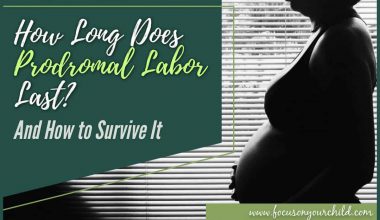Before you’ve even had a chance to process those two pink lines, you’re suddenly thrust into the world of pregnancy to-dos, morning sickness hacks, and a newfound suspicion of deli meats.
The first trimester is a wild ride—equal parts excitement, nerves, and a surprisingly strong aversion to your partner’s cologne. Welcome to the club!
Here’s a checklist that keeps it real for busy parents, packed with practical, day-to-day steps for those precious, occasionally queasy first three months.
Book That First Prenatal Appointment
The minute the pee stick confirms your suspicions, it’s time to ring up your GP or midwife.
Many clinics want to see you somewhere between six and ten weeks, so don’t wait until you’ve memorised every baby name on Pinterest.
This early appointment is where you get confirmation, a rough due date, and basic testing started.
Bring all your questions (even the ones you think are silly). That’s what they’re there for.
And if your memory is already turning to mush, jot notes in your phone.
Start Taking Prenatal Vitamins
If your medicine cabinet looks like a graveyard for half-used multi-vitamins, welcome to pregnancy! But there’s one supplement you can’t ignore now: folic acid.
Experts recommend starting a prenatal vitamin with at least 400 micrograms of folic acid as soon as possible to help prevent neural tube defects in your little one.
Still feeling queasy? Some find chewy or gummy prenatals easier to stomach.
Ask your provider if you need extra iron or vitamin D, depending on your diet and health.
Check Your Medications
Suddenly every medicine label looks like it’s in hieroglyphics.
Before you drive yourself potty, make sure your GP or pharmacist knows you’re pregnant. Some everyday medications—think certain allergy or acne treatments—aren’t recommended right now.
Don’t forget to mention herbal remedies and supplements, even if they’re “all natural.” The internet is full of wild claims, but your health professional will have the best advice.
Embrace the Food Radar
Your sudden aversion to last week’s favourite curry? Perfectly normal. Food aversions and cravings can arrive overnight, sometimes before you even miss a period.
Now’s the moment to start tuning in to food safety. Skip unpasteurised cheeses, certain fish high in mercury, and pink-in-the-middle meats.
A printable list on your fridge or pinned in your phone can save you from panicked Googling in the cheese aisle.
If you’re struggling to keep anything down (hello, ginger biscuits and lemon water), your midwife can help you stay hydrated and recommend ways to sneak in nutrients.
Severe sickness (called hyperemesis gravidarum) is more common than people think—don’t tough it out alone.
Tame the Morning Sickness Beast
Morning sickness doesn’t care about the clock. It can strike at dawn, dusk, or in the queue at Sainsbury’s.
Small, frequent meals, ginger tea, and salty crackers are classic remedies—though no one tells you how many of those crackers you’ll eat in three months.
Some swear by acupressure wrist bands or vitamin B6 supplements, which have research backing their safety and effectiveness. If you’re losing weight or can’t keep down fluids, it’s time to check with your doctor.
Reassess Your Daily Routine
Late nights at the pub or crushing it at spin class may suddenly seem less appealing.
Energy levels take a nosedive for many women in the first trimester, and it’s completely normal to need more rest. (Napping under your desk? No judgment.)
Gentle exercise like walking, swimming, or prenatal yoga can help boost your energy and mood. If you’re already active, most routines are safe to continue—just check with your provider and listen to your body.
Check Your Caffeine Fix
Bad news for fans of the bottomless coffee mug: experts advise limiting caffeine to 200mg per day during pregnancy. That’s roughly one mug of filter coffee, two cups of tea, or a modest handful of chocolate bars.
Decaf options (or herbal teas) can help you keep your cuppa ritual, but scan labels—some herbal blends aren’t pregnancy-friendly.
Brush Up on Pregnancy-Safe Self-Care
Long, hot baths and spa days may sound heavenly, but steaming-hot tubs and certain essential oils aren’t advised in the first trimester.
Check labels on skincare products for retinoids, salicylic acid, and other ingredients that are best avoided right now.
A simple moisturiser, SPF, and fragrance-free shower gel are safe bets. And never underestimate the restorative power of a nap and stretchy leggings.
Plan Your Pregnancy Announcements
To share or not to share—that’s the eternal first trimester question.
Many wait until after the twelve-week scan, but there’s no rule on timing. Some lean on close friends or family early, especially for support if nausea or anxiety are running high.
If you’re working, it can be helpful to give your boss a heads-up if you need time off for appointments or are struggling with symptoms.
Legally, you don’t have to spill the beans until 15 weeks before your due date, but early communication can sometimes make things easier.
Get Familiar With Maternity Rights and Leave
Every country’s got its own fine print, so check your local laws and your workplace policy on maternity leave, flexible hours, and rights at work. The NHS has a thorough guide for parents in the UK, while the CDC offers advice for parents in the US.
A quick read-through now can save you a paperwork headache later.
Start a Pregnancy Journal (Even Just in Your Notes App)
You may think you’ll remember every milestone (or bout of nausea), but pregnancy brain is a real thing.
Jotting down a few notes—how you felt, questions for your next appointment, or possible baby names—can become a lovely keepsake down the line.
No need for a fancy leather-bound diary; the back of a receipt or a Google Doc works just as well.
Tackle the To-Do List… But Gently
The internet will try to convince you you’re already behind on 47 registries and a nursery mood board. Truth is, there’s no rush. The first trimester is about taking it one day at a time.
Jot down tasks that genuinely matter—medical appointments, vitamins, work notifications—and let the Pinterest boards wait. There’s plenty of time for cot shopping later.
Connect With Other Parents
Finding your tribe can make a world of difference. Local parent groups, virtual forums, and pregnancy apps (like Peanut’s community boards) can be a lifeline, especially for those “Is this normal?” moments.
Sometimes just reading someone else’s “I cried at a John Lewis advert” confession is all you need to feel less alone.
Don’t Forget Your Partner
It’s easy for your significant other to feel like they’re on the sidelines, especially if they’re not growing a human or vomiting at the smell of toast. Make space for their questions and feelings, too.
Share updates from appointments, involve them in decisions, and tag them in ridiculous baby name lists. This is a team sport, after all.
Know When to Call the Midwife or Doctor
Aches, cramps, or spotting can send your mind racing. Most are harmless, but always trust your gut.
Severe pain, heavy bleeding, fever, or any worrying symptoms deserve a quick call to your healthcare team.
No one will ever roll their eyes at your concerns—pregnancy is unpredictable, and it’s always better to err on the side of caution.
Rest, Nourish, Repeat
The first trimester is all about building the foundations for the marathon ahead.
Rest when you can (even if that means sneaking a nap in the loo at work). Eat what you can manage, even if it’s beige and boring.
And be gentle with yourself—growing a baby is hard work, even if you’re not doing much more than napping and nibbling toast.
Big Changes, Small Steps
No one has it all figured out at the six-week mark, or even at twelve weeks.
The first trimester is about small wins—surviving another day of nausea, ticking off the next appointment, or simply making it to Friday.
Every parent’s journey looks a little different, and that’s more than okay. There’ll be plenty of time for planning, prepping, and panic-Googling baby gadgets in the months to come.
For now, breathe. You’re doing beautifully—crackers, naps, and all.





